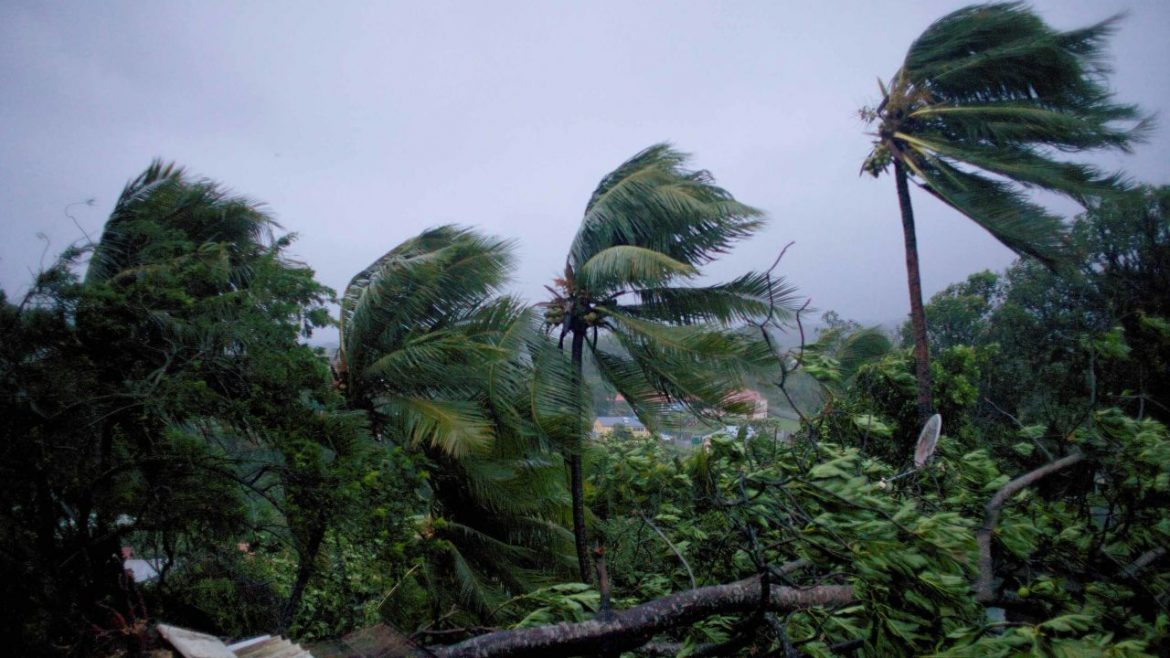The prime minister of St Vincent and the Grenadines (SVG) has criticised what he described as a lack of political will in western Europe and the US to tackle the global climate crisis as Hurricane Beryl has made landfall as an “extremely dangerous” category 4 storm.
According to reports, torrential rain and gale-force winds downed power lines, smashed vehicles and forced thousands into shelters. Videos posted on social media showed metal roofing sheets gliding through the air.
Speaking from his residence in SVG on Monday, Ralph Gonsalves described the unfolding catastrophe as the “monster” storm ripped off rooftops, including that of the 204-year-old St George’s Anglican cathedral in the country’s capital, Kingstown.
“We have no electricity, and while I am talking to you, the rain is beating on the official prime minister’s residence, and the winds are howling. And it’s going to get much worse,” he said. “The coming hours are going to be horrendous.”
In a statement late on Monday, Gonsalves said that on Union Island, 90% of houses had lost their roofs or been severely damaged.
Read also: Shell halts construction of huge biodiesel plant in Rotterdam
Warning that there is worse to come, the US National Oceanic and Atmospheric Administration described Beryl as “life-threatening”.
Beryl strengthened from a tropical depression to a major hurricane in just 42 hours – a phenomenon recorded only six times before in Atlantic hurricane history.
By Sunday morning, countries across the eastern Caribbean, including SVG, Barbados, Grenada and St Lucia, had been put on hurricane watch. Before the end of the day, a full-blown state of emergency declaration was issued on some islands, with curfews and restrictions on movement.
Beryl has also grounded flights and forced the postponement of major events in the region, including the celebrations around the St Vincent Carnival and the 20-nation Caribbean Community (Caricom) leaders’ summit, which was scheduled for this week in Grenada.
Scientists say that human-caused climate breakdown has increased the occurrence of the most intense and destructive tropical storms, because warming oceans provide more energy and increase their strength.
With the winds howling in the background, Gonsalves said:
“For the major emitters of greenhouse gases, those who contribute most to global warning, you are getting a lot of talking, but you are not seeing a lot of action – as in making money available to small-island developing states and other vulnerable countries.
“I am hopeful that what is happening – and we are quite early in the hurricane season – will alert them to our vulnerabilities, our weaknesses and encourage them to honour the commitments they have made on a range of issues, from the Paris accord to the current time.”
Story was adapted from the Guardian.
